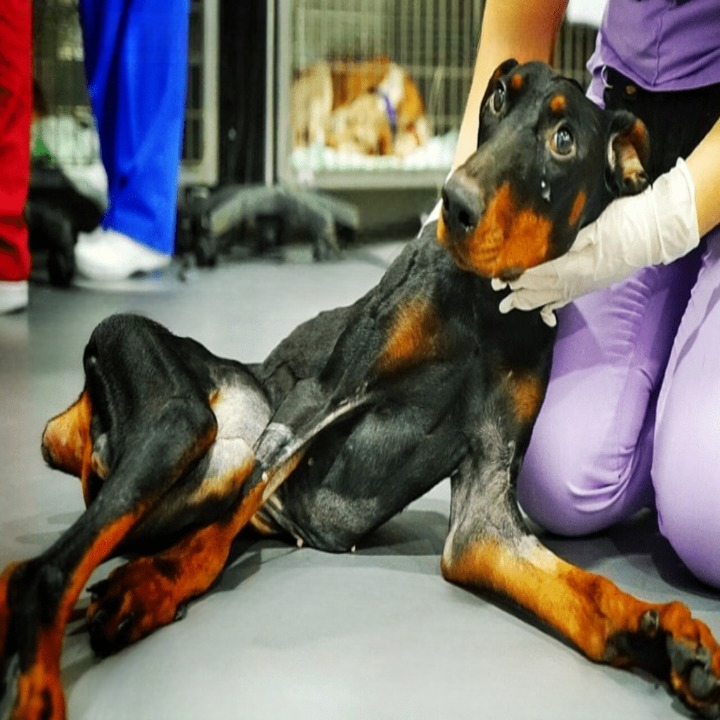The scene was haunting — one that would linger in the minds of every rescuer who witnessed it. In the heart of a forgotten junkyard, amid twisted heaps of rusted metal and the ghosts of discarded dreams, something unexpected clung to life. It was a place where hope rarely survived — yet, somehow, a faint spark endured.
There lay Nancy, a Doberman reduced to little more than skin and bone, her frail body bearing the brutal marks of neglect. She was barely conscious, her eyes clouded with exhaustion and fear, but deep within them flickered a fragile plea — a quiet call for help that cut through the hearts of those who found her. Her twisted, weakened frame told a story of long suffering and abandonment, one that few creatures could endure. The air was thick with the stench of decay, but beneath it lingered something faint — the fragile scent of hope carried by the rescuers. It was a race against time now, a desperate struggle to reclaim one life from the edge of death. For Nancy, this moment — as gentle hands reached toward her trembling body — marked not the end of her pain, but the beginning of her fight to live.
The days that followed at the animal hospital were a precarious balancing act between life and loss. Nancy, emaciated and riddled with untreated wounds, teetered on the brink. The veterinary team worked around the clock — administering fluids, tending her injuries, and coaxing her body back to strength with care she’d never known before. Her once-proud frame was now a map of torment, but a faint will to live began to flicker within her. Each small milestone — a sip of water, a weak lift of her head, the ghost of a tail wag — was met with hushed celebration. In those quiet moments, a bond was forming, one forged not in words but in shared determination.
As weeks turned into months, Nancy’s body began to heal, muscle slowly replacing bone and shadow. Yet, just as her body grew stronger, a new struggle emerged — one buried deep within her mind. Despite her caregivers’ best efforts, Nancy developed an overwhelming fear of confined spaces. The moment she was placed inside a kennel, even briefly, panic took hold. Her once-calm eyes clouded again with distress, and progress ground to a halt. It became painfully clear that her rescuers were fighting more than physical wounds; they were confronting the invisible scars of trauma — the kind that time alone cannot mend.
